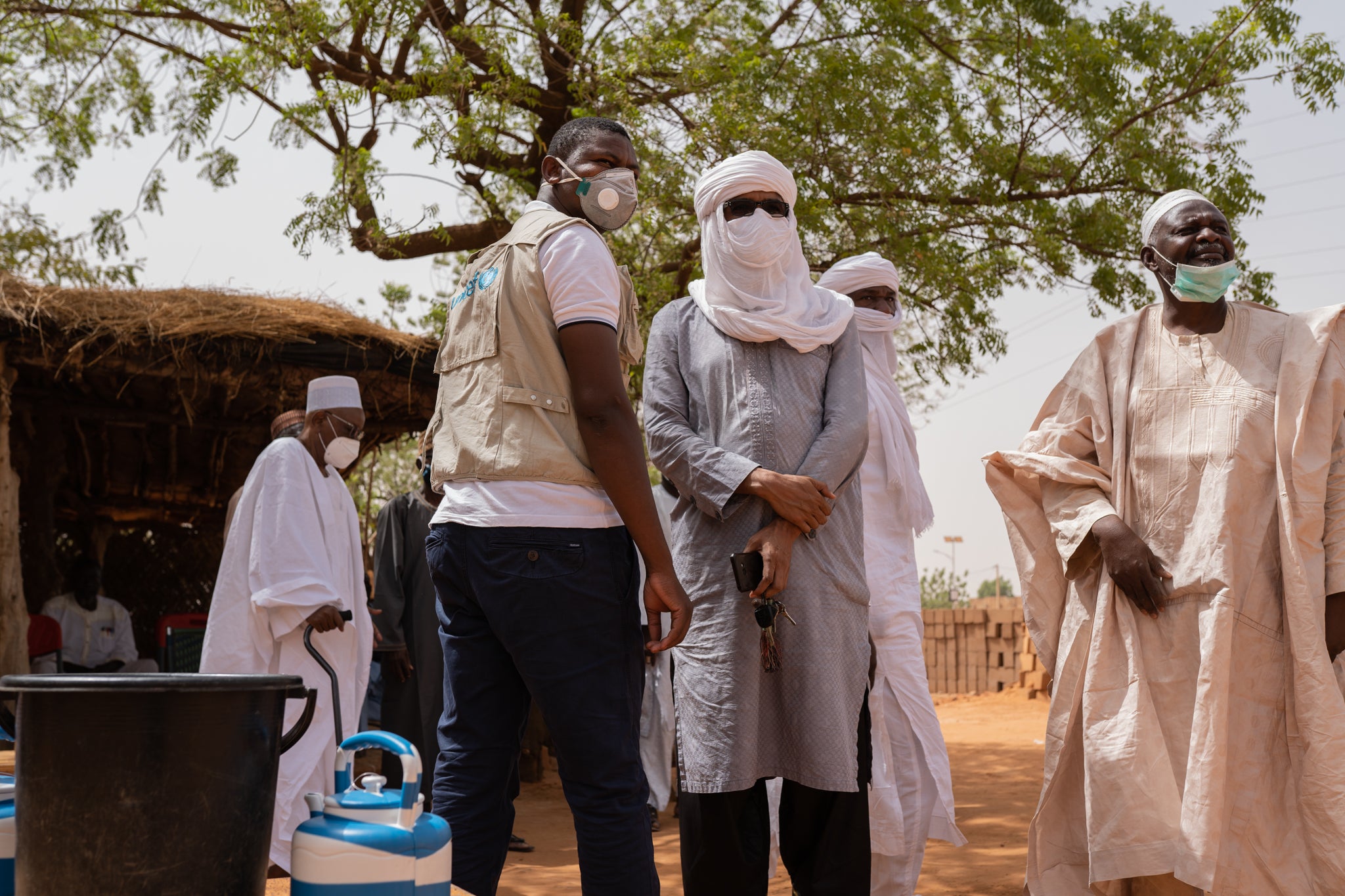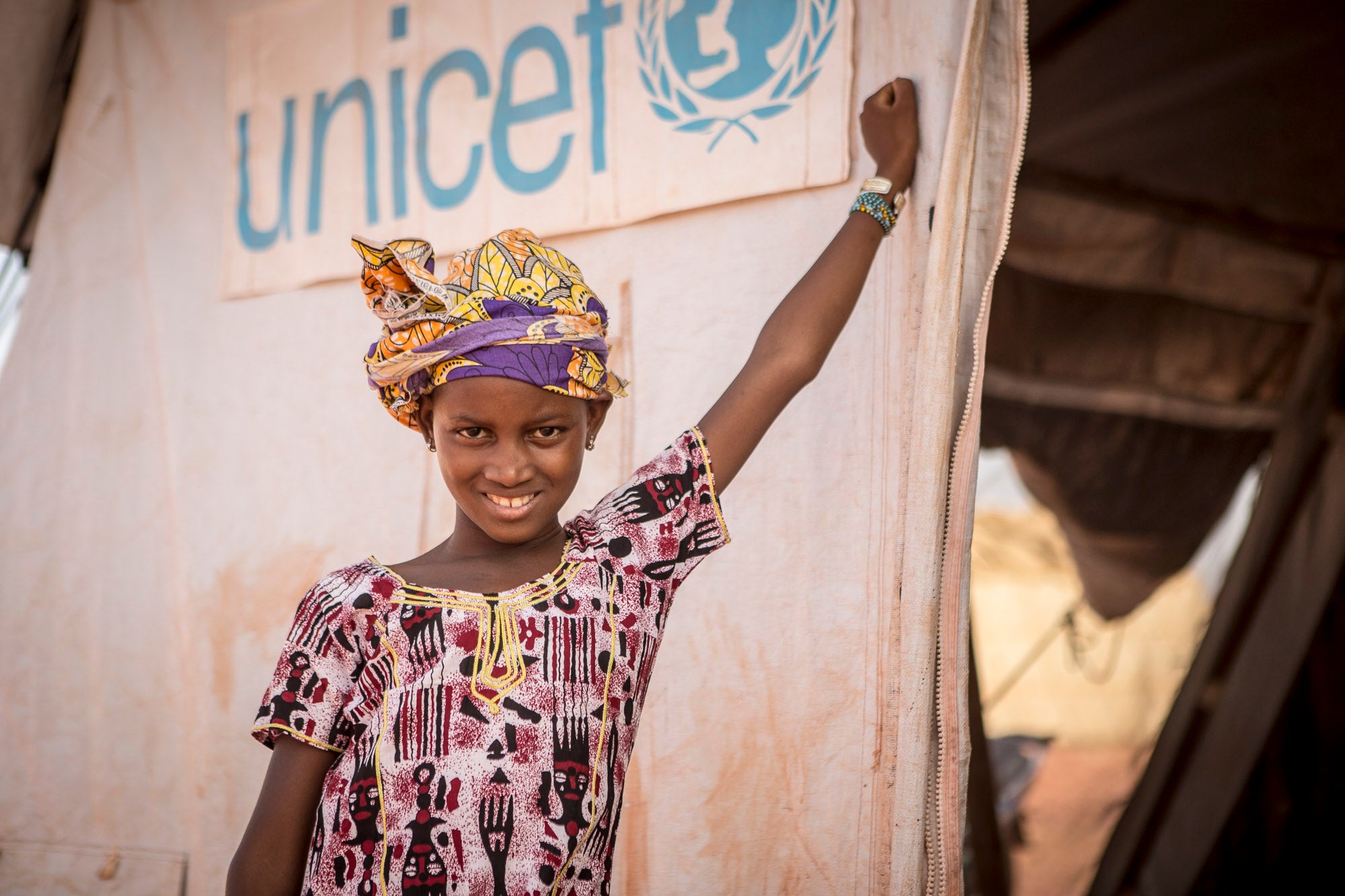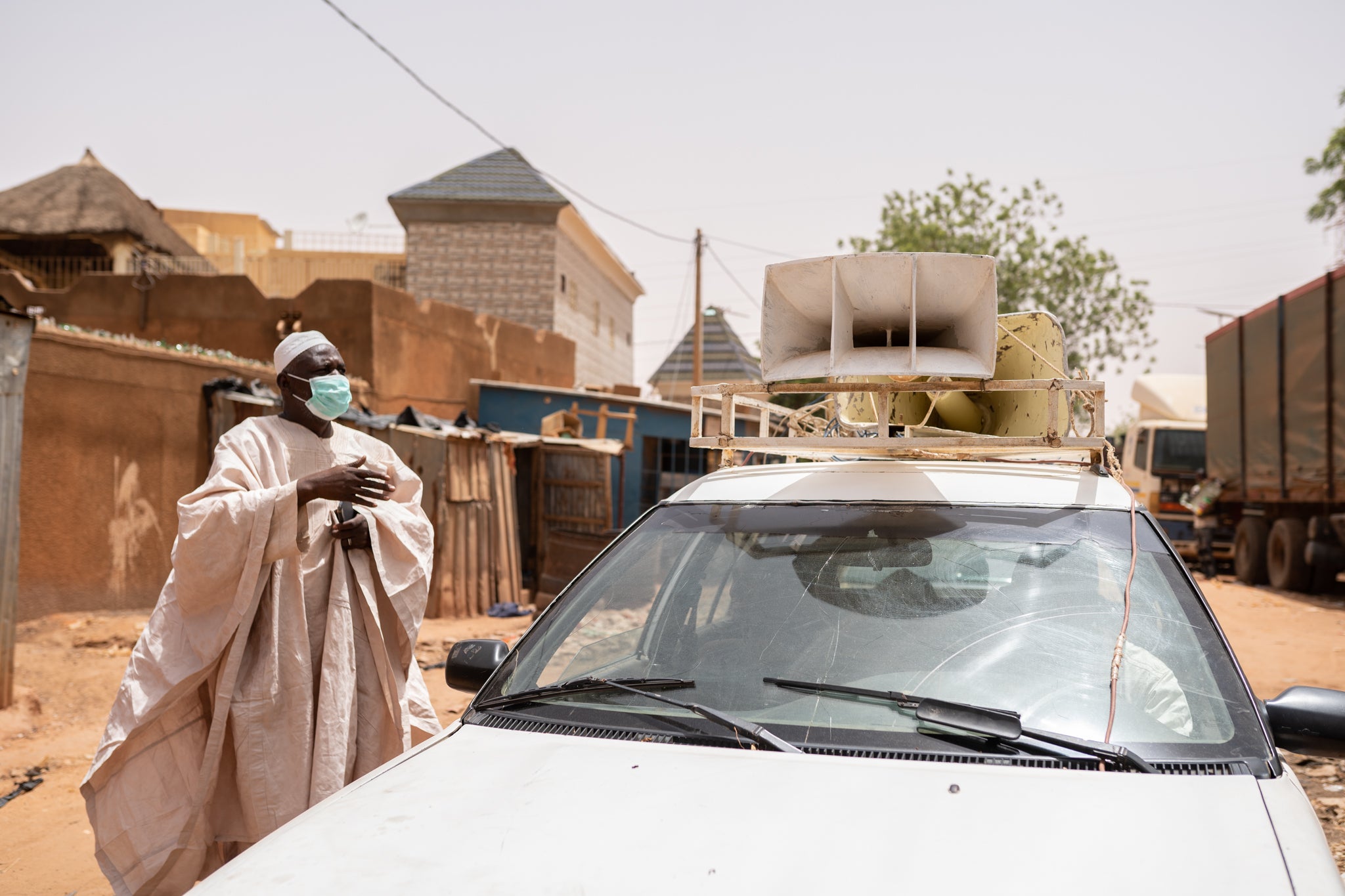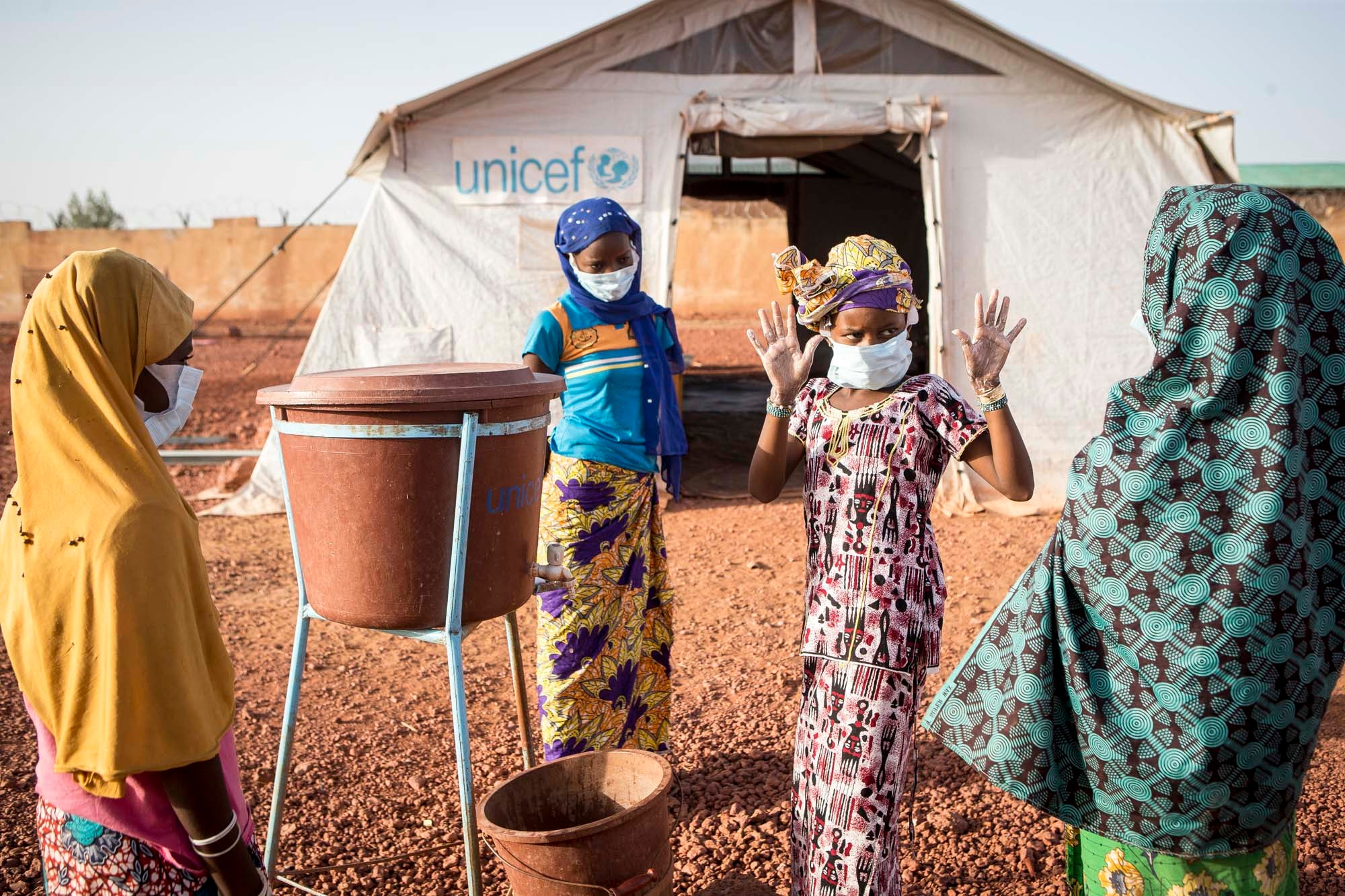Isis and al-Qaeda set to profit from Covid-19 as lockdowns and aid shortages makes Sahel communities ‘an easy target’
Violent instability in the Sahel means millions need international aid – but lockdowns are stifling the efforts of aid workers. And an economic standstill creates opportunities for jihadis, as Borzou Daragahi reports


The men with guns swarmed the girl’s village near Bankass, at Mali’s border with Burkina Faso. She watched as the fighters – likely members of one of the violent extremist groups roaming the arid region – murdered her relatives.
Twelve-year-old Hamsa escaped physical harm. But a day and a half later, when she and her haggard family arrived at the Socoura displaced persons camp in the central city of Mopti with only the clothes they were wearing, she was catatonic.
It took a month for relief workers and psychologists to coax a word out of her. “I was afraid,” she said, according to aid officials. “I was terrified. I thought I was going to get killed.”
But as Hamsa began playing again and remembering what it was to be a child, she blossomed. The child, a member of the Fulani ethnic group that makes up the majority of the Sahel, soon became one of the young leaders of the refugee camp overseen by international aid organisations and the Malian government. She dedicated herself to her schooling, growing more cheerful with each passing day.
Then the coronavirus struck, and everything came to halt.
Schools shut down. Airports closed, making aid shipments far more irregular. Faltering attempts by UN mediators to broker truces to the various layers of fighting stopped. Meanwhile, jihadi groups affiliated with both al-Qaeda and Isis began stepping up attacks on government forces and each other.
Children like Hamsa as well as her family found themselves at greater risk. Unicef announced last month that some 2.3 million children are in need of protection across the Sahel region, which spans the southern edge of the Sahara desert and includes Mali, Niger and Burkina Faso. Those numbers are up by more than 80 per cent from last year, with another 5.3 million children in need of humanitarian assistance.
“These people live day by day,” Mahamat Saleh Annadi, head of the UN’s mission to Mali, told The Independent. “They rely on aid, and now we cannot move. These are vulnerable people, because the state is not there. The UN can’t intervene. They become an easy target.”

The coronavirus pandemic has struck particularly hard at war zones, and there are few places around the world where it has had a graver impact than the Sahel. The vast arid expanse has become the epicentre of a complex civil war pitting various government forces and international troops against extremist jihadis and criminal gangs, who fight each other as well as the authorities.
There have been only about 1,400 cases of Covid-19 in Mali and at least 79 deaths. But the biggest effect has been a lockdown that has hampered everything from the informal economy sustaining many families, to vaccination efforts and relief deliveries. In northern and central Mali, more than 1 million people are in need of urgent healthcare, according to Doctors Without Borders. An economic standstill has created opportunities for jihadis seeking to recruit fighters.
Instability in the Sahel is rooted in the 2011 Nato-backed war which overthrew Libyan-dictator Muammar Gaddafi, and ignited an uprising among ethnic Tuaregs, a Berber-speaking group in the Sahara.
Jihadis, who had been active for years, soon entered the mix of groups vying for control of the north and overpowered all others. With the help of foreign troops, the extremists were dislodged from the north, but they merely regrouped elsewhere.
“What we’re seeing since 2017 is [that] the conflict is spreading toward central Mali,” said Ahmed Aida, Unicef’s representative in the Mopti region. “There are armed groups as well as community defence groups.”

Both Jama’at Nasr al-Islam wal Muslimin (JMIN), an affiliate of al-Qaeda, and a regional Isis branch hold sway over parts of the Sahel. They compete with each other for recruits and sometimes allegedly coordinate attacks against governments and thousands of western and African troops.
“The pandemic seems likely to make these agile insurgents more dangerous still, as it further slows and weakens local governments and militaries,” the Crisis Group, a Brussels-based organisation, said in a report.
Last month, as the outbreak was taking hold, unknown armed groups raided a Malian military base in Bamba, killing 25 troops. “We saw 23 bodies on the spot,” a resident told the AFP news agency.
Days after the attack in Bamba, gunmen on motorcycles killed a dozen villagers 60 miles away in Bandiagara. “What is killing us isn’t coronavirus but war,” said Ali Dolo, the mayor of the area.
Experts also worry both al-Qaeda and Isis will exploit the economic misery created by the pandemic to step up recruiting efforts. “Both of these groups are savvy enough to utilise the global upheaval that may result from the spread of the pandemic to persuade more recruits to join their ranks,” said a report by the International Centre for Counter-Terrorism in The Hague.
Because of the violence, aid groups have for years had their movement restricted in the Sahel. They often risk kidnapping-for-ransom to get food and medicine to remote areas where jihadis and bandits roam.
Adding to the confusion, armed groups including the uniformed military forces frequently deliver aid to win the trust of locals. But accepting one group’s help might make you a target for another one. That makes providing simple health services like measles vaccinations to far-flung areas a formidable political and logistical challenge.
Those tasks have now become even more vexing. In Niger, some 19 per cent of health workers have tested positive for coronavirus, further diminishing their ability to reach people in remote villages.
“We can’t access vulnerable areas where you can go to deliver humanitarian services,” said Félicité Tchibindat, the Unicef representative in Niger, which has reported nearly 1,000 cases and at least 76 deaths due to coronavirus.
The rate of infection among health workers is discouraging families from seeking care and vaccines. “The health facilities are becoming the hotspots,” she said. “Covid-19 came on top of existing vulnerabilities, which added additional pressure on what were already stretched services.”

Other Malians are not taking the coronavirus threat seriously enough, said Abdoul Salam Hama, a journalist at Sahalien, a news outlet in Bamako. He described how when one of the news organisation’s correspondents in Timbuktu wore a surgical mask, he was laughed at.
“People don’t change their way of life; they don’t change their behaviour,” he said. “They say, ‘This is not a dangerous thing. We don’t care about coronavirus. This is a European disease.’”
To counter such disinformation among the most vulnerable, aid organisations under lockdown measures have started looking to those already on the ground. They began training residents of refugee camps to spread the word about effectively washing hands and maintaining a social distance from others in order to prevent the spread of the pathogen.
To the delight of aid officials, Hamsa, now a 13-year-old who only a year ago could barely speak, was among those who volunteered to help teach her peers to stay healthy and prevent the spread of the pandemic, a step towards helping her heal from her trauma.
“She’s one of the young people sensitising others about Covid-19,” said Mr Aida. “She goes door-to-door – or rather, tent-to-tent.”
Join our commenting forum
Join thought-provoking conversations, follow other Independent readers and see their replies
Comments